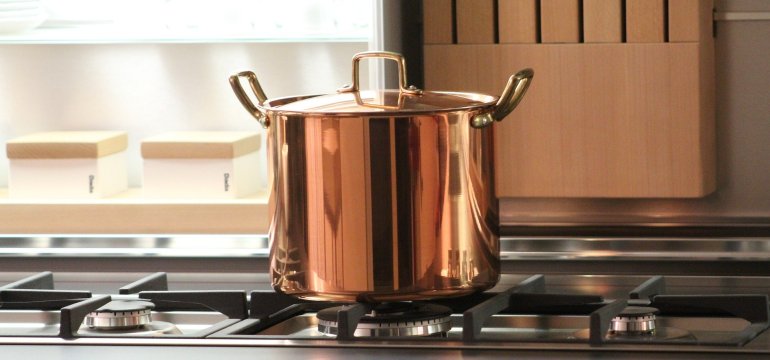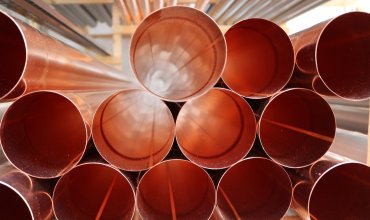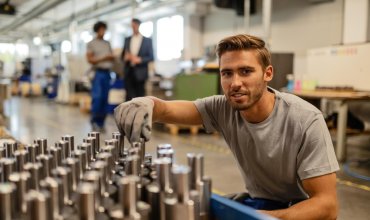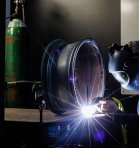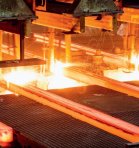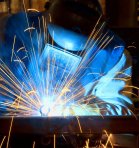Wondering why copper has been one of the most widely used materials in home installations for years? Is it because it is durable, or does it have other qualities that make it indispensable in many Polish homes? Copper in installations is a topic that arouses many emotions. On the one hand, it enjoys a reputation as a reliable material, while on the other hand it is not without flaws. So let's take a closer look at what distinguishes this metal from other materials and what challenges are associated with its use.
Durability and resilience of copper
The first and one of the most important advantages of copper is its durability. This metal has a high resistance to corrosion, which is extremely important in the context of water installations. No matter what copper comes into contact with - be it hard water or various chemicals - it is able to retain its functional properties for years. This not only means that we will have to make repairs less often, but also reduces the risk of failures that could lead to flooding. The mechanical strength of copper is a feature appreciated especially in areas where installations are subjected to various types of stress and vibration.
Ease of installation and forming
Copper is a material that can be easily molded, which is a great convenience during installation. Its flexibility makes it possible to adapt the wires to almost any space, which is especially valuable in older buildings, where we often encounter uneven walls and irregular angles. Professionals value copper for its ability to be easily cut and joined, which speeds up and simplifies the installation process. Thanks to this, copper installations also often have an aesthetically pleasing appearance, as they can be precisely matched with other elements of interior architecture.
Unquestionable hygienic properties
One of the aspects that bring copper to the forefront among other materials for water installations is its hygienic properties. In an era of growing awareness of healthy lifestyles and water purity, it is important that the pipes through which water flows into our homes are made of a material that does not encourage the growth of bacteria and other microorganisms. Copper has natural germicidal properties, meaning that it is able to reduce the number of microorganisms in water, which has a direct impact on its quality and safety of use.
Costs associated with copper installations
Unfortunately, it cannot be overlooked that one of the main downsides of using copper is its cost. The material is relatively expensive, which translates into higher installation prices. For those planning larger construction projects, such an expense can be a major financial burden. Fortunately, this cost is often offset by the longevity and reliability of copper installations. It is also worth noting that with the increasing demand for copper on global markets, its price can fluctuate regularly, which can further affect the final cost of the installation.
Environmental benefits of copper
In an era of increasing concern for the environment, the eco-friendliness of the materials used is also important. Copper is fully recyclable, which means that it can be recycled again at the end of its life without losing its properties. This process is less energy-intensive than the production of new materials, which translates into less consumption of natural resources and reduced emissions of harmful substances into the atmosphere. Thus, by choosing copper, you can contribute to the preservation of our planet, which is crucial for many people.
Modern applications of copper in construction
Although copper has been used in plumbing for years, new technologies continue to emerge that expand the palette of its applications. Today, more and more experiments are being conducted with its use in underfloor heating systems. The conductive properties of copper make it efficiently transfer heat, which makes it ideal for this type of technology. It is also worth noting that copper wires are increasingly used in solar panel systems, where they act as heat conductors. Such solutions are perfectly in line with the trend of seeking ecological and economical ways to manage energy.
Summary - is it worth betting on copper?
Summing up the topic of copper home installations, it is worth noting that the decision on the choice of material should always be well thought out and tailored to individual needs and financial capabilities. Copper is a material with many advantages, but also with some drawbacks that can affect the final choice. Whether you rely on its durability, hygienic properties or recyclability, it is worth consulting specialists and comparing it with alternatives available on the market. Copper in domestic installations - the advantages and disadvantages of this solution are best evaluated by taking into account all aspects of its application.


